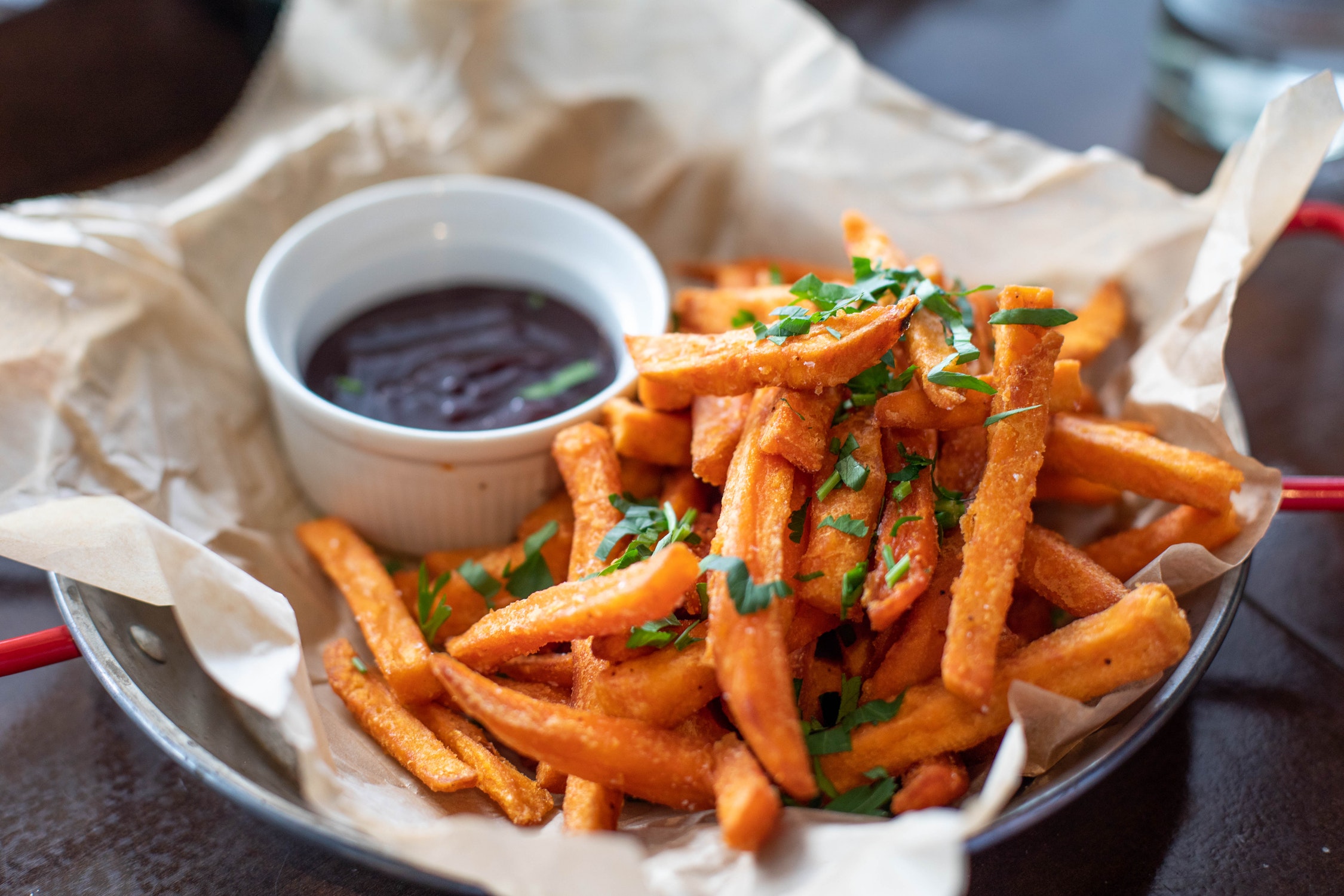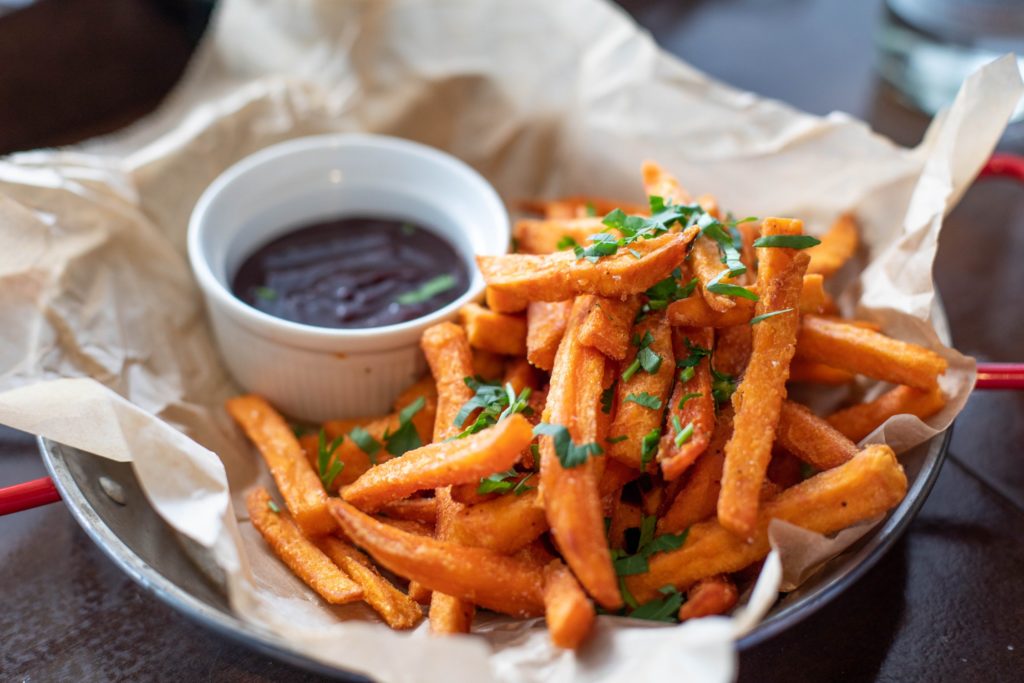
At Foodbaby, we generally try to talk about what you should eat, rather than foods to avoid when trying to get pregnant. But there are certain foods that can harm your fertility and even decrease your chances of having a healthy pregnancy. So here are our top 5 foods to avoid when trying to get pregnant.
Top 5 Foods to Avoid When Trying to get Pregnant
Commercial trans fats are the only nutrient you shouldn’t even be having in moderation. Trans fats are naturally found in small quantities in dairy, but the trans fat of concern is actually a slightly different structure. It is produced commercially by partially hydrogenating vegetable oils, that is, changing their structure to make them solid at room temperature. This is done to add crunch and crispiness and to extend shelf life.
Trans fats increase inflammatory markers, inflammation throughout the body (which is known to have a negative effect on egg health) and increase insulin resistance (which can negatively affect ovulation.) Evidence shows they drastically increase infertility as well as increasing the risk of miscarriage and stillbirth.
If you’re not sure where trans fats are found make sure you download my free Guide To Completely Avoiding Trans Fat here.

2. Soft Drinks
Studies have shown the consuming excess sugar harms fertility. It seems anything more than about 70g of sugar per day is associated with an increased risk of infertility and anovulation. This is likely due to the effect sugar can have on our blood sugar levels, which in turn, affects our hormone levels and ovulation.
Sugar seems to also directly harm the health of our eggs and early embryos by increasing oxidative stress.
Soft drinks are a key source of sugar in our diets. Plus studies show that even if our soft drink intake is quite low (and doesn’t push our sugar intake up to 70g a day), they still cause harm. One study found that even as little as 0.1–1 cups/day decreased chances of having a live birth, compared to women who drank no soft drinks.

3. Processed or Charred Meat
There has been much debate about whether it’s best to follow a plant-based diet for fertility. While eating more plants has lots of health benefits and many people do tend to eat more meat than they need, the evidence is mixed. Some studies indicate that a higher intake of veg protein is linked to better fertility but others have shown some types of meat appear to be associated with better fertility!
What is clear is that processed and charred meat are foods to avoid when trying to get pregnant.
High intakes of processed meat in the preconception period (not just when you’re pregnant, but before!) have been associated with increased risk of gestational diabetes in pregnancy. Gestational diabetes is associated with maternal and fetal complications so reducing our risk is important. Processed meat intake has been linked to increased risk of some types of cancers so it something we don’t want to be consuming huge amounts of anyway.
Charred meat impacts our fertility in a different way. Charring meat increases the amount of advanced glycation end-products (AGEs). AGEs are compounds formed when fat or proteins combine with sugar and change structure. Meat is especially prone to AGE formation during the cooking process. The more charred the more AGEs. Studies have found that AGEs accumulation is associated with decreased pregnancy rates and increased miscarriage risk.

4. Lonely Carbs
Carbs always seem to get a bad rap. And in fact, there is some evidence that consuming too much carbs could be harmful to our fertility. But it does seem that the more important things about carbs when it comes to fertility, is not the exact amount, but the type and how they are consumed.
When it comes to types, some carbs, like whole grains and fruit have great fertility benefits, whereas refined carbs and excess sugar have been shown to be harmful.
But it’s also about how you consume carbs as this has a big impact on our blood sugars. Why does this matter? Well, one of the key hormones that helps to keep our blood sugars balanced is insulin. And insulin levels have an impact on our reproductive hormones. So when our blood sugars are out of balance, our hormones and ability to ovulate follows!
Consuming carbs with protein, fat, acid and fibre helps to ensure that they are gentle on your blood sugars, so make sure you avoid lonely carbs when trying to get pregnant.

5. Hot or Drinks Food in Plastic
As well as the direct impact food has on our bodies, the way food is stored and served can also impact our fertility and the health of our pregnancies.
Endocrine disruptors are toxins in our environment that have the ability to interfere with our hormones and fertility. They can affect our ability to ovulate, reduce implantation and may even increase miscarriage risk, pregnancy complications and cause long term fetal harm.
Bisphenol A (BPA) is a common endocrine disruptor, mainly found in plastic products. It’s known to leach into food, particularly if it’s hot or acid. So when you’re trying to get pregnant be sure to avoid food and drink in plastic containers as much as possible, especially when hot.
This includes ditching the plastic kettle, avoiding take-way coffee cups, using glass containers for leftovers (especially if you’ll be microwaving them to reheat) and thinking about how hot food will be served when ordering in.
Although some plastic products are now ‘BPA-free’, other plasticisers have been shown to have a similar impact, so skip the plastic as much as you can.

So now you know some of the most important foods to avoid when trying to get pregnant, what foods should you eat? Check out our Top 12 Fertility Foods download and our then start adding them to your diet using our fertility recipe books.
back to top
Foodbaby WAS FOUNDED on Kulin Nation land. We acknowledge the Wurundjeri people, Indigenous Australians, who are the Traditional Custodians of this land. We pay our respects to all Aboriginal and Torres Strait Islander Peoples and their Elders past, present and emerging.
Fertility dietitian, cycles nerd, lover of food and squishy newborn baby cuddles. I help people get pregnant (fast) and have the healthiest pregnancies possible.
Hey, I'm Ami
@foodbabyfertility